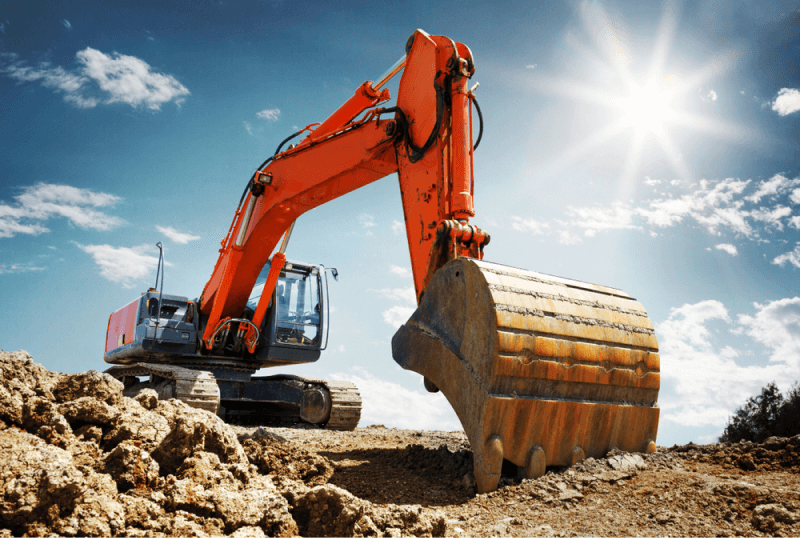Excavators are versatile and essential machines in the construction industry, playing a critical role in a wide variety of projects. These powerful pieces of equipment are designed to handle heavy-duty tasks, making them indispensable for construction sites. From residential developments to large-scale infrastructure projects, excavators are used to perform a range of activities that are fundamental to successful construction. Here’s a look at the role of excavators in different types of construction projects.
Residential Construction
In residential construction, excavators are commonly used for site preparation and foundation work. The site must be removed and leveled prior to the commencement of any construction. Excavators efficiently remove trees, rocks, and other debris, creating a clean slate for the building. Once the site is prepared, excavators dig trenches for the foundation, utilities, and drainage systems. The precision and power of excavators ensure that these tasks are completed quickly and accurately, setting the stage for a smooth construction process.
Commercial Construction
Extensive excavation work is frequently necessary for commercial construction projects, including office structures, shopping centers, and hotels. Volvo excavators for sale are used to dig large foundations, create basements, and install underground parking facilities. These projects often involve deep excavations, where the stability and reach of excavators are crucial. Additionally, excavators are used to demolish existing structures, clearing the way for new construction. The ability to switch between various attachments, such as breakers and shears, makes excavators versatile tools for both construction and demolition tasks.
Infrastructure Projects
Infrastructure projects, including roadways, bridges, and tunnels, heavily rely on excavators. For road construction, excavators are used to remove old pavement, dig trenches for utilities, and grade the terrain. In bridge construction, excavators help in the preparation of foundations and piers, as well as in the placement of large structural components. Tunnel construction, one of the most challenging excavation tasks, requires specialized excavators that can operate in confined spaces and handle the removal of massive amounts of earth and rock. The robust design and adaptability of excavators make them ideal for these demanding projects.
Utility And Pipeline Installation
Excavators play a vital role in the installation of utilities and pipelines. Whether it’s laying water, gas, or sewage lines, excavators are used to dig the necessary trenches and backfill them once the pipes are in place. For long-distance pipeline projects, such as those for oil and gas, excavators are employed to clear the right-of-way, excavate trenches, and assist in the placement of pipeline sections. The efficiency of excavators in these applications helps to minimize disruption and ensure the timely completion of utility installations.
Landscaping And Environmental Projects
In landscaping and environmental projects, excavators are used for tasks such as land grading, pond construction, and erosion control. In urban settings, excavators help create parks, gardens, and recreational areas by shaping the land and installing features like retaining walls and water elements. For environmental restoration projects, such as wetland creation and riverbank stabilization, excavators are used to move soil, plant vegetation, and construct natural habitats. Their ability to operate in various terrains and perform delicate tasks makes excavators invaluable in these projects.
Mining And Quarrying
Excavators are also crucial in mining and quarrying operations. In these industries, they are used to extract minerals, ores, and aggregates from the earth. Excavators dig and load material onto trucks or conveyor belts, facilitating the efficient transport of raw materials. In quarries, excavators break down large rocks and boulders into manageable sizes. The durability and power of excavators enable them to handle the harsh conditions of mining and quarrying environments, ensuring continuous production.
Conclusion
The role of excavators in construction is diverse and multifaceted. Their ability to execute a diverse array of duties, including trenching, site preparation, demolition, and material handling, renders them indispensable on construction sites. Whether it’s a small residential project or a massive infrastructure development, excavators provide the power, precision, and versatility needed to complete the job efficiently. As construction technology continues to evolve, the capabilities of excavators are likely to expand even further, solidifying their role as essential tools in the construction industry.









